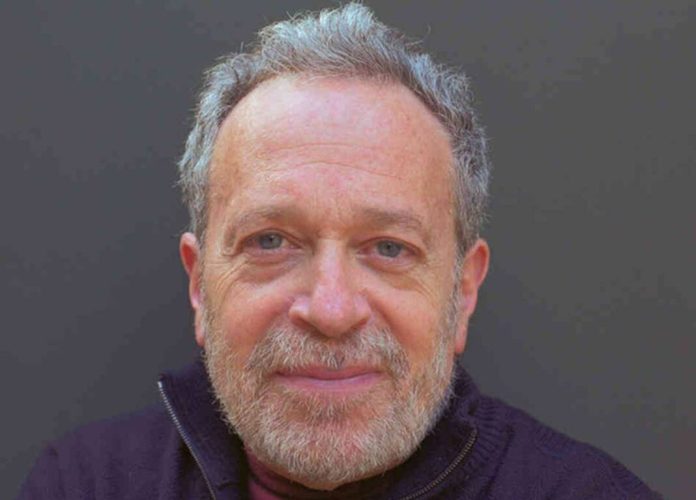What? You’re not mesmerized by today’s Iowa Republican caucuses? You’re not planning to spend Martin Luther King Jr. Day glued to your mobile phone for the play-by-play? You’re not excited to find out whether Nikki Haley or Ron DeSantis comes in second to Trump?
Nor, to tell you the truth, am I. Iowa is solidly Trump territory.
I knew Iowa when it wasn’t. I campaigned there for every Democratic presidential contender from Walter Mondale in 1984 to Barack Obama in 2012.
I love Iowans — their kindness, their enthusiasm for sports, their personal engagement with politics. I love Iowa’s soft rolling hills, its small towns, its cities that resemble small towns in much of the rest of the nation.
Yet between 2012 and 2020, no state has swung as heavily Republican as Iowa. It went from giving Barack Obama a 6-percentage-point win in 2012 to giving Trump an 8-point win in 2020.
Democrats have now pretty much written off Iowa. For the first time since 1972, the Iowa caucuses will not be the first event on Democrats’ presidential nomination calendar. (The Democratic Party has picked South Carolina to go first, on Feb. 3. Iowa Democrats will vote by mail, and the results won’t be known until March 5, the day of the Republicans’ Super Tuesday, when 16 states and territories vote.)
What happened? It’s not that right-wing furies have taken over the entire upper Midwest. Over the same years, Illinois and Minnesota moved left.
Iowa is a microcosm of an older, rural, whiter, more Christian evangelical, non-college America — left-behind fly-over country that has become resentful fodder for Trump. (Not all of Iowa. Even as Iowa’s largely white small towns and rural areas have turned bright red, Des Moines’ educated and prosperous suburbs have moved leftward.)
I saw it happen. When I was helping Fritz Mondale in 1984, I noticed Iowa beginning to shift from family farms to corporate agriculture, and from industrialized manufacturing to knowledge-intensive jobs.
The challenge was to create a new economy for Iowa and for much of the Midwest.
I didn’t have any good ideas for creating that new economy, though — and neither did Mondale, who won Iowa’s Democratic caucuses that year but lost the general election to Ronald Reagan in Iowa and every other state, except his own Minnesota.
Yet not until George W. Bush’s reelection campaign in 2004 did a Republican presidential candidate win Iowa again.
When Tom Vilsack was governor of Iowa in the early 2000s and flirting with the idea of a presidential run, he told me he worried that Iowa’s high school valedictorians used to want to attend the University of Iowa or Iowa State, but now wanted the Ivy League or Stanford or NYU. Even Iowa’s own college graduates were leaving for Chicago, Minneapolis-St. Paul, and New York.
Vilsack wanted to know how to keep Iowa’s talent in Iowa — a variant of the question I couldn’t answer for Mondale. By this time I had a few ideas — setting up high-tech hubs around major universities, blanketing parts of the state with free Wi-Fi, having community colleges supply the talent local industries needed — but they all cost money that Iowa didn’t have.
As a report from the National Bureau of Economic Research noted recently, Iowa continues to lose more than 34% of its college graduates each year. Illinois, by contrast, gains 20% more college graduates than it produces. Minnesota has about 8% more college grads than it produces.
This talent migration has hastened America’s split into two cultures, not just in Iowa and the Midwest but across the nation. One — mostly well-educated, urban, more secular, younger, and more diverse — votes Democratic. The other — mostly rural, less well-educated, more religious and evangelical, older, and less diverse (Iowa is 90% white) — votes Republican.
The Midwest reflects that split. Minnesota and Illinois fall into the first culture; Iowa, the second.
Iowa has banned almost all abortions, transition care for minors, and books that contain sex from school libraries. It provides publicly funded vouchers for private schools and makes it easy to buy guns. It has decided not to provide its children free federal nutrition benefits (through the Summer EBT program).
Illinois, on the other hand, bans high-capacity semiautomatic rifles and has legalized most abortions, as well as access to pot, and will give its children federal nutrition benefits. Minnesota has also legalized pot, allowed unauthorized immigrants to obtain driver’s licenses, and expanded voting access for felons and teenagers. And it’s part of the Summer EBT program.
There may have been a time when Iowa represented America. No longer.
If the Senate and the Electoral College reflected where most Americans now live and the culture they live in, American politics would be a lot different than it is. Even if Trump wins today’s Iowa caucuses, as expected, he wouldn’t stand a chance of becoming president.
Happy MLK Day.
Robert Reich, former U.S. Secretary of Labor, is professor of public policy at the University of California at Berkeley and the author of “The System: Who Rigged It, How We Fix It.” His column does not necessarily reflect the opinion of The Lima News editorial board or AIM Media, owner of The Lima News.







